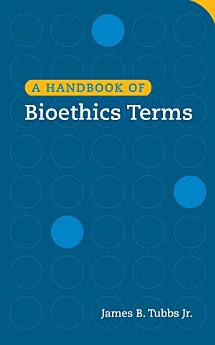A Handbook of Bioethics Terms
Información sobre este eBook
A Handbook of Bioethics Terms is a handy and concise glossary-style reference featuring over 400 entries on the significant terms, expressions, titles, and court cases that are most important to the field. Most entries are cross-referenced, making this handbook a valuable addition to the bookshelves of undergraduate and graduate students in health care ethics, physicians and nurses, members of institutional ethics committees and review boards, and others interested in bioethics.
A sampling of terms from the handbook:
Abortion
DNR (Do Not Resuscitate)
Eugenics
Gene therapy
Living will
Natural law
Primum non nocere
Single-payer system
Surrogate consent
Schiavo case
Sample Definitions:
Formalism: In ethical theory, a type of deontology in which an action is judged to be right if it is in accord with a moral rule, and wrong if it violates a moral rule.
Xenograft: Organ or tissue transplanted from one individual to another individual of another species. (See Transplantation, organ and tissue)
Acerca del autor
James B. Tubbs Jr. is professor of ethics and religion and chair of the Department of Religious Studies at the University of Detroit Mercy.




